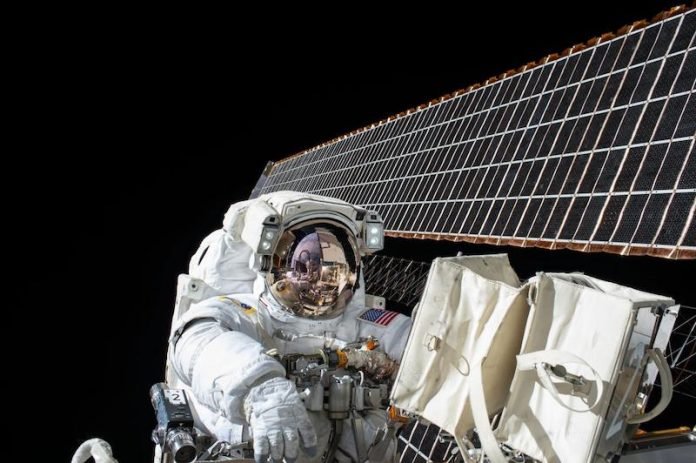
New findings from NASA’s landmark Twins Study suggest that long spaceflight could change the gut microbiome in human.
The findings provide important information about how spaceflight influences the human body.
They may help researchers develop new ways to protect astronauts’ and space tourists’ health during space travel.
The study was led by a team from Northwestern University.
The gut’s microbiome is a complex community of microorganisms that live in the digestive tract, including bacteria, viruses, and fungi.
Previous research has shown that gut microtome strongly related to our health. It can affect body weight, digestion, metabolism, immunity and brain health.
For example, some recent studies have linked gut microtome to brain diseases like Alzheimer’s disease, Parkinson’s disease, autism, and schizophrenia.
In the study, astronaut Scott Kelly stayed on the International Space Station (ISS) from 2015 to 2016.
His identical twin brother, retired astronaut Mark Kelly, provided a baseline for observation on Earth.
The researchers systematically examined how spaceflight affects the human body, including gene expression, bone density, immune system responses, and telomere dynamics.
They also checked how the composition of bacteria in Scott Kelly’s gut changed over time and space.
They compared fecal samples from Scott Kelly before he left for space, four during the year in space and three after he returned to Earth.
The researchers found that he had a shift in the ratio of two major categories of bacteria in his gut microbiome. This shift returned to normal after he came back to Earth.
The diversity of bacteria in his microbiome was still the same.
They explain that several factors may have influenced Scott Kelly’s microbiome while in space.
The factors include increased radiation, microgravity, shifts in body clock, sleep loss, lack of air circulation, and the stress of living in an enclosed space.
The authors also suggest that the freeze-dried, irradiated, pre-packaged foods could decrease the diversity in his microbiome.
The findings are consistent with the results from mouse studies the Northwestern team conducted in the past.
The team suggests that this study is very important because scientists cannot send humans to Mars without knowing how spaceflight affects the body.
They have to get the information by 2035 when it is planned to send people to Mars.
The leader of the study is Northwestern’s Fred W. Turek. The first author is Martha Vitaterna.
The study is published in the journal Science.
Copyright © 2019 Knowridge Science Report. All rights reserved.



